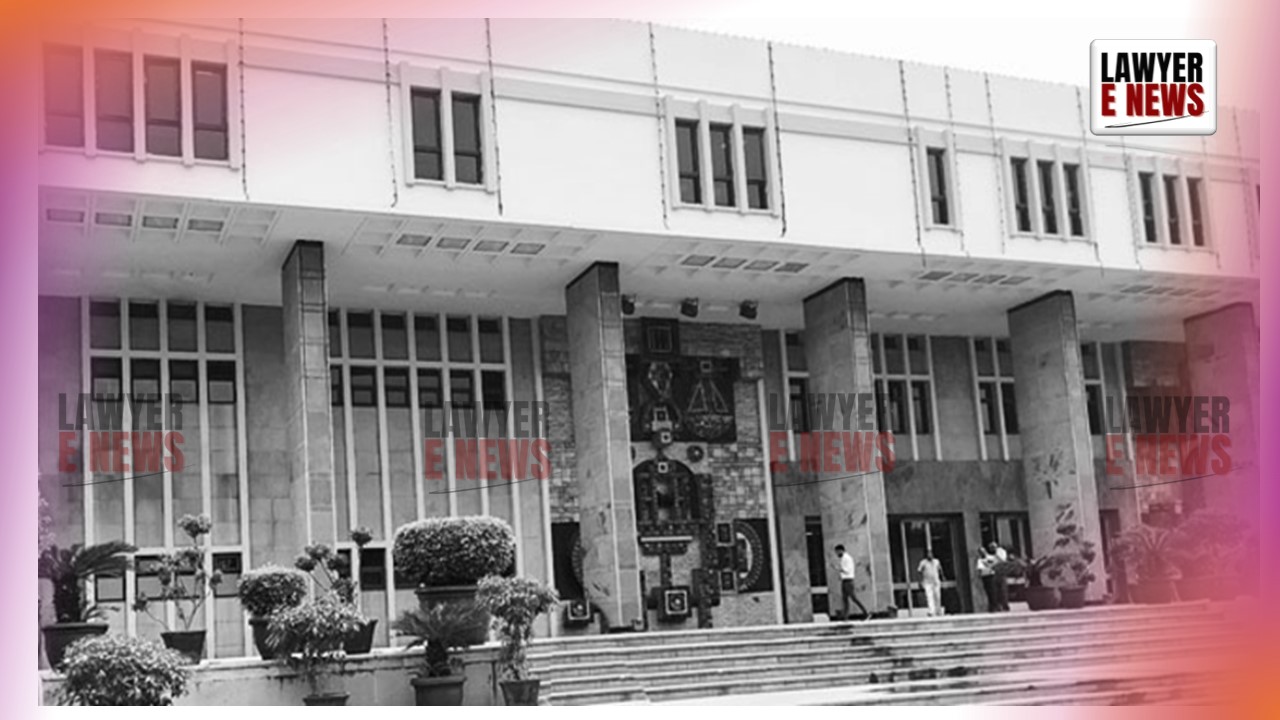-
by sayum
14 February 2026 2:22 PM



Delhi High Court, comprising Justice Yashwant Varma and Justice Dharmesh Sharma, dismissed a review petition under Section 114 and Order XLVII Rule 1 of the Code of Civil Procedure, 1908 (CPC). The review sought reconsideration of the court's earlier judgment that upheld an arbitral award imposing a 36% interest rate on delayed payments under a commercial contract. The court reaffirmed that high interest rates in commercial transactions between sophisticated parties do not violate public policy under Section 34(2) of the Arbitration and Conciliation Act, 1996.
The court rejected the appellant’s contention that the 36% interest rate was excessive and violated public policy, holding that the clause was part of a consensual contract between two commercially competent entities with equal bargaining power. The court stated:
"Exorbitant rates in commercial contracts reflect market risks and do not contravene public policy when the parties are sophisticated entities with equal bargaining power."
The court further held that high interest rates do not automatically violate public policy, especially in the absence of evidence of exploitation, coercion, or unconscionability.
Reiterating the principle laid down in Renusagar Power Co. Ltd. v. General Electric Co. (1994 Supp (1) SCC 644) and subsequent case law, the court emphasized that public policy under the Arbitration Act has a narrow scope post the 2015 amendment. It clarified:
"For an award to be against public policy, mere contravention of law is not sufficient. There must be a violation of a fundamental policy of Indian law, such as principles of natural justice, or laws serving public good or public interest."
The court found that the interest rate clause was consistent with Indian legal principles governing commercial contracts and did not violate any fundamental policy.
The appellant alleged an error apparent on the face of the record, arguing that the interest calculation was incorrect and the arbitral tribunal misinterpreted the repayment terms in the sanction letters. The court dismissed these claims, stating that:
"An error apparent on the face of the record must be evident without requiring long-drawn reasoning or re-examination of facts. This review application is, in essence, an attempt to re-litigate issues already decided."
The court also rejected the claim that interest exceeding statutory limits under the Negotiable Instruments Act, 1881, rendered the award invalid, holding that the parties had contractually agreed to the interest rates.
The dispute arose from two sanction letters issued in 2002 and 2003, wherein M/s Morgan Securities & Credits Pvt. Ltd. extended a bill discounting facility to M/s BPL Limited and its affiliate M/s BPL Display Device Limited (BDDL). Under these agreements, BPL agreed to pay a concessional interest rate of 22.5% per annum, subject to an escalation to 36% in case of default. The appellants defaulted on repayments amounting to ₹25.79 crores, prompting arbitration proceedings.
The arbitral tribunal, in its award dated December 14, 2016, directed BPL to pay ₹27 crores with 36% interest for delayed payments. BPL’s objections under Section 34 of the Arbitration Act and subsequent appeal under Section 37 were dismissed by the Single Judge and Division Bench, respectively.
The appellant argued that the interest amount ballooned disproportionately due to the interpretation of default clauses in the sanction letters. The court, however, found no merit in this claim, holding that:
The arbitral tribunal and lower courts had thoroughly examined the repayment terms.
BPL had not raised objections to the interest rate during the contract's execution or arbitration.
The appellant contended that the arbitral award violated public policy by enforcing a usurious interest rate contrary to Section 80 of the Negotiable Instruments Act, 1881, and the Usurious Loans Act, 1918. The court dismissed this argument, noting:
The agreement was entered into by sophisticated entities, and the appellant had acknowledged its liability in correspondence.
There was no evidence that the terms were unfair, coercive, or oppressive.
The appellant claimed that certain bills of exchange were time-barred under Section 19 of the Limitation Act, 1963. The court rejected this argument, noting that the acknowledgment of debt by BPL in February 2007 extended the limitation period.
Dismissing the review petition, the court emphasized the importance of upholding freely negotiated commercial agreements. It reiterated:
"The sanctity of a contract is a fundamental principle underlying the stability and predictability of legal and commercial relationships. High interest rates may reflect the lender’s risk and market conditions and cannot be deemed unjust or immoral without specific evidence of exploitation."
The court also warned against misuse of review petitions as disguised appeals, stating:
"A review petition is not an appeal in disguise. The limitations on the power of review are well-settled and cannot be expanded to substitute a substantive re-hearing."
Decision Date: November 18, 2024
